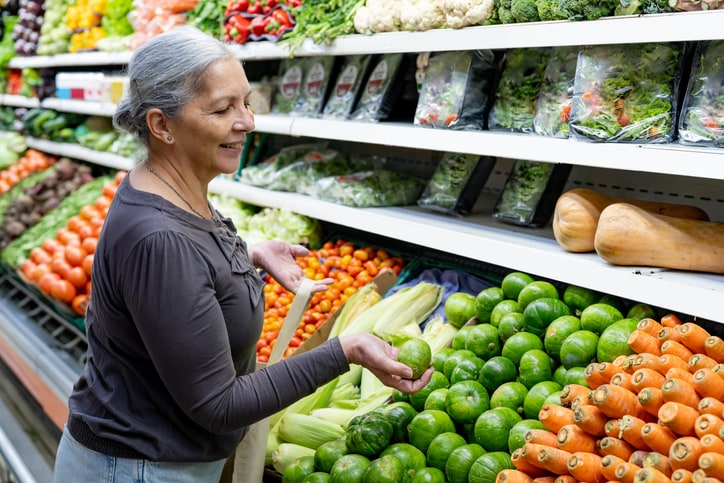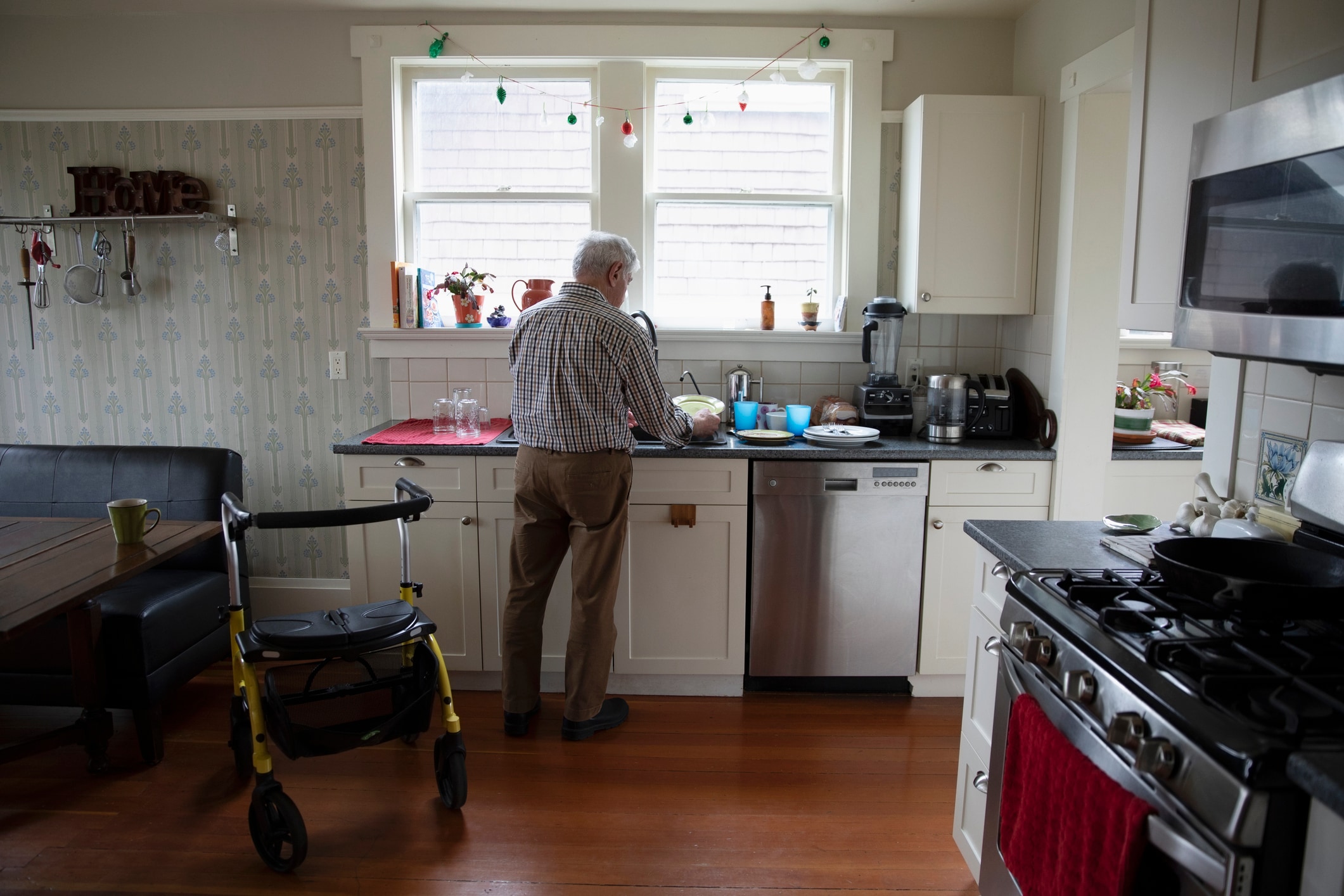When you hear about online dating, you might think of young singles swiping for hookups on Tinder. But adults in their 60s, 70s and older are using apps and senior dating sites to look for long-term partners and even for casual dating. According to a 2023 survey conducted by the Pew Research Center, 1 in 6 Americans ages 50 and older have used dating apps or websites and 6% of partnered adults ages 50 and up met their significant other through online dating.
While these platforms offer a convenient way to connect, they can also pose technical challenges and safety concerns. Older adults often make the mistake of treating online dating like traditional dating, says Amie Leadingham, an online dating expert and dating coach based in Los Angeles. “For example, they allow someone to pick them up at their house on the first date, which can pose personal safety issues,” she says.
Here, get to know the potential safety hazards of online dating for seniors, and follow these key tips to protect yourself while looking for love.
7 online dating safety tips for seniors
Online dating websites are filled with well-intentioned daters, but scammers can also use them to take advantage of those looking for love. According to the Federal Trade Commission (FTC), Americans lost a whopping $547 million to romance scams in 2021, and these crimes are on the rise. With increased awareness of what to look out for, senior daters and caregivers can help reduce the chances of falling victim to online dating romance scams — and other scams targeting seniors.
Older adults should be fully aware of online dating best practices and potential red flags before they fire up a profile. If you’re a senior ready to start swiping, or the caregiver for a senior, consider these safety guidelines from experts.
1. Don’t share personal information
Leadingham has encountered many seniors who take their online crush’s statements at face value without properly vetting them. “They could be a scammer trying to prey on the sympathy of others and create an emotional relationship to scam singles for money or more,” she notes.
Don’t share personal information with someone you don’t know well. This includes your address, birthdate, Social Security number or any other information that could be used for identity theft or fraud. Additionally, avoid sharing details about your daily routine, and limit how much you reveal about family.
2. Never reveal financial information or give money
If you’re asked to do this, it’s a sure sign of a scam, says Lisa M. Cini, an aging expert based in Columbus, Ohio, and author of “BOOM: The Baby Boomers Guide to Leveraging Technology.”
Audrey Lindt is a 64-year-old woman who ventured into online dating after a divorce and wrote a memoir about it, “Misadventures in Mature Dating.” Lindt found that scams aren’t always overt and may look like harmless excuses, like the suitor saying they can’t access email or a bank account and need just a little financial help for an emergency. Scams may also involve the person asking you to wire money or purchase or reload gift cards, the FTC says.
“Once I talked to a man for three months, and it felt like a fairy tale until I realized he was not a real person and appeared to be a scam.”
— Audrey Lindt, author
3. Be wary of frequent excuses to avoid video chats or meetups
Be cautious if someone wants to only be a pen pal and build an emotional relationship without ever talking or meeting, Leadingham says. This could be a sign they’re not who they say they are or are hiding something.
“Once I talked to a man for three months, and it felt like a fairy tale until I realized he was not a real person and appeared to be a scam,” Lindt says. “It’s a real jungle out there, and I enjoyed the conversations and characters, but from the beginning I had to face the truth that not all men on there are real, and not everything they’re saying is true.”
She found that if someone always claims to have phone problems or can’t access a camera, it’s likely a scam.
4. Don’t fall too hard too fast
The FTC warns that scammers often try to woo victims by professing love quickly or love bombing. For that reason, it’s wise to go slow while avoiding getting caught up in emotion and rushing past red flags.
Also, “Pay attention to the sob stories that tug for your sympathy, and don’t fall for them,” Leadingham recommends.
5. Pay attention to ongoing excuses about constant travel abroad
It’s common for scammers to say they have a specific profession or other obligations that keep them away, often in other countries, and unable to meet in person. The FTC has found that some of the most common lines are that the person is in the military, an international doctor, working on an oil rig or otherwise traveling outside of the U.S.
6. Keep your communication on the app or website for a while
“It’s so important before giving out your personal information to stay on the app to chat until you really trust someone,” says Leadingham. Those looking to take advantage of daters often try to move communication off the platform, where messages aren’t closely monitored.
“On some dating apps, people aren’t allowed to send pictures, links or attachments, which will deter a lot of romance scammer and hacker-type behaviors,” notes Leadingham. If you do eventually move to the phone, she adds, set up a Google Voice number to help protect your phone number and identity.
7. Maintain personal safety on dates
Once you’ve connected with someone and want to take it to the next level, here are some ways to ensure safety on dates:
- Start with a virtual date. Leadingham says having a video chat — or ideally a few — can help you gauge if the person is who they say they are.
- Stick to a plain backdrop. If you’re having a video chat date, be cautious about showing too much of the interior of your home, Cini says. You don’t want someone new to be able to figure out either where you live or to inadvertently show off your valuables.
- Meet in public. When you are meeting someone new in person, don’t meet in a private home. Instead, Cini says, meet in an open public area, like a park or cafe. And you shouldn’t let someone pick you up at home until you’re at a point where you feel you can trust them, says Leadingham.
- Designate a safety buddy. Make sure at least one friend or family member knows where you are when you meet up with someone, Cini urges, and ask them to call you partway through the date to check in.
- Know your limits. If you’re meeting in person over drinks, limit your alcohol intake to two drinks so you can stay mindful of your surroundings, Leadingham says. “Your goal is to get to know each other, so it’s key that you say sober to do this,” she explains. You want to remain aware not only of your personal safety, but of your personal belongings.
- Tune into your intuition. If something doesn’t feel right, find a way to end the date early. “If something feels like a red flag, don’t ignore it — trust your gut and leave,” Leadingham says.
“Online dating can add that spark back into your life, since getting out of your pajamas and robe and putting your best foot forward is a great way to start feeling better and connect with others.”
— Lisa M. Cini, aging expert
The pros and cons of online dating for seniors
When an older adult becomes single due to divorce or death, they may feel scared to start dating again. They may also feel profoundly lonely, especially if their friends are coupled up. Loneliness was often considered the top killer of seniors even before the pandemic pushed rates of depression to an all-time high, says Lisa M. Cini, an aging expert based in Columbus, Ohio, and author of “BOOM: The Baby Boomers Guide to Leveraging Technology.”
“Online dating can add that spark back into your life,” says Cini, “since getting out of your pajamas and robe and putting your best foot forward is a great way to start feeling better and connect with others.”
While romantic relationships are often the goal, Cini notes, the matchmaking abilities of online dating tools can still introduce you to friendships that offer connection.
How caregivers can support seniors who want to start swiping
Jumping into the world of online dating may be nerve-racking regardless of age, but it can be especially harrowing if you’re the child of a senior dater who you fear is at risk of being scammed. If you’re in that boat, Leadingham advises having an open dialogue with your loved one, sharing the benefits but also the red flags they need to look out for before dating.
Leadingham says there are plenty of resources out there that can help both adult children and their senior parents feel more confident about this big step. “There are books, online classes and dating coaches like myself that can help your single parent get prepared,” she explains. “This might not only save them from heartache, but can keep them safe as well.”





